Individual Climate

Can using climate-friendly products really make a difference in combating climate change ?
Can Using Climate-Friendly Products Really Make a Difference in Combating Climate Change? Understanding Climate-Friendly Products: Clarification of what constitutes climate-friendly products, which are designed to have a lower environmental impact than their conventional counterparts. Individual Actions and Collective Impact: Small Changes, Big Results: The cumulative effect of individual actions can lead to significant environmental benefits, such as reduced carbon emissions and lowered resource depletion. Market Influence: Consumer choices drive market demand for eco-friendly products, encouraging businesses to adopt sustainable practices. Limitations and Considerations: Scale of Impact: Personal choices are essential but must be part of a broader strategy for addressing climate change effectively. False Sense of Accomplishment: Risk of individuals feeling they have done enough by using a few eco-friendly products. Cost and Accessibility: Potential barriers to adoption due to higher costs or limited availability. Conclusion: Using climate-friendly products can make a difference in combating climate change, but it is one piece of a larger puzzle that requires widespread adoption, innovation, and systemic change.
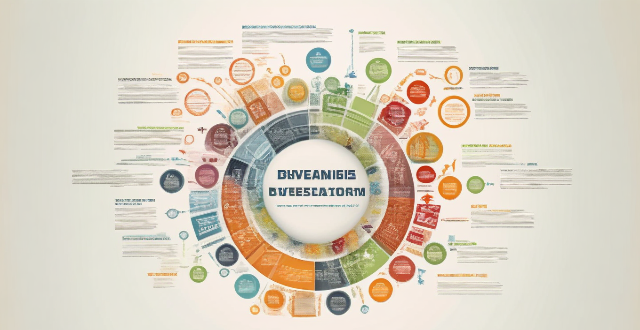
What is climate awareness and why is it important ?
Climate awareness is vital for driving individual and collective action towards a sustainable future, as it involves understanding the Earth's climate patterns and the impact of human activities. It prompts immediate action, informed decision-making, and fosters a sense of responsibility towards future generations. Climate awareness also has implications for health, economic stability, and biodiversity conservation. Furthermore, it aligns with the goals of sustainable development, empowers individuals to contribute positively to their communities, and is essential for advocating policy changes that support environmental protection.

What are some examples of successful citizen-led climate initiatives ?
Successful citizen-led climate initiatives play a crucial role in addressing the global climate crisis. These initiatives are often driven by grassroots movements, community organizations, and individuals who are committed to taking action against climate change. Examples of successful citizen-led climate initiatives include renewable energy cooperatives, community gardens and urban farming projects, bike share programs, climate education and advocacy efforts, and waste reduction and recycling programs. These initiatives highlight the importance of collective action and individual responsibility in creating a more sustainable future for all.

Can individual actions significantly contribute to addressing climate change from an ethical standpoint ?
From an ethical standpoint, individual actions can significantly contribute to addressing climate change. This is because every individual has a responsibility to take care of the environment and protect it for future generations. Here are some ways in which individual actions can make a difference: - Reducing Carbon Footprint: One of the most effective ways to address climate change is by reducing our carbon footprint. This can be done by making small changes in our daily lives, such as using public transportation or carpooling instead of driving alone, turning off lights and electronics when not in use, eating less meat and more plant-based foods, and buying products with less packaging and recycling whenever possible. By making these changes, we can reduce our carbon emissions and help slow down the effects of climate change. - Supporting Renewable Energy: Another way individuals can contribute to addressing climate change is by supporting renewable energy sources. This can be done by installing solar panels or wind turbines on your property (if feasible), switching to a green energy provider that uses renewable energy sources, and encouraging your local government to invest in renewable energy projects. By supporting renewable energy, we can reduce our reliance on fossil fuels and help transition to a cleaner, more sustainable energy system. - Educating Others: Finally, one of the most important things individuals can do to address climate change is to educate others about its severity and urgency. This can be done by sharing information about climate change with friends and family, attending protests or rallies to raise awareness about the issue, and writing letters to elected officials urging them to take action on climate change. By educating others, we can spread awareness about the issue and encourage more people to take action to address it.

What is the role of individuals in addressing climate change and environmental degradation ?
This article discusses the role of individuals in combating climate change and environmental degradation. It highlights the cumulative impact of individual actions, their potential to inspire others, and the political pressure they can exert. The article provides practical steps individuals can take, such as reducing their carbon footprint, supporting renewable energy, waste reduction and recycling, advocating for environmental policies, and spreading awareness. It emphasizes that collective efforts can make a significant difference in creating a more sustainable future for our planet.

Can team sports contribute to mental rejuvenation more than individual sports ?
Team sports may contribute more to mental rejuvenation than individual sports due to increased social interaction, motivation, and sense of belonging. However, individual preferences vary, and some people may find greater mental rejuvenation through individual sports or other activities that bring them joy and fulfillment.

How can team sports help in individual skill development ?
Team sports contribute significantly to individual skill development by improving communication skills, enhancing leadership abilities, increasing self-confidence, bettering time management, improving social skills, promoting physical fitness and coordination, providing opportunities to learn from mistakes, and fostering adaptability.

How does team sports impact mental health compared to individual sports ?
This article explores how team sports impact mental health compared to individual sports. It highlights the social support and belongingness provided by team sports, which can reduce feelings of isolation and loneliness. The article also discusses how team sports promote accountability and responsibility, helping individuals develop discipline and self-control. Additionally, it emphasizes the importance of goal setting and achievement in team sports, which can boost self-esteem and confidence. Overall, the article concludes that team sports have a significant impact on mental health compared to individual sports due to their social aspect.

How do individual versus team sports impact self-esteem in young people ?
The text discusses the impact of individual versus team sports on self-esteem in young people. It outlines key points such as the focus on personal growth and discipline in individual sports, and the social support and collaboration learned in team sports. The benefits of each type of sport are also highlighted, including increased autonomy and clear feedback from individual sports, and social skills development and resilience from team sports. A comparative analysis is provided, discussing the pros and cons of each type of sport in relation to self-esteem. The conclusion suggests that both types of sports can positively impact self-esteem, but finding the right fit for each individual is crucial.

Is there a difference in mental health benefits between individual and group exercises ?
Exercise plays a vital role in maintaining good mental health, with both individual and group exercises offering unique benefits. Individual exercises provide flexibility, focus, and personal challenge, while group exercises offer social support, motivation, and accountability. Both types of exercise have been shown to reduce stress, anxiety, and depression while improving mood, self-esteem, and cognitive function. Ultimately, finding an activity that you enjoy and can consistently incorporate into your lifestyle is key to maintaining good mental health through exercise.

How do individual versus team sports differ in their impact on child development ?
Individual sports foster self-reliance and technical mastery, while team sports emphasize social skills and emotional intelligence. Both have unique benefits for child development, and the choice should consider the child's personality and desired skill development. A combination of both might provide the most well-rounded experience.

How do the principles of sports biomechanics differ between individual and team sports ?
This text discusses the principles of sports biomechanics in individual and team sports. It highlights the differences in kinematics, kinetics, and coordination between the two types of sports. In individual sports, there is a focus on precision, technique optimization, and personal performance, while team sports emphasize strategic interactions, group coordination, and adaptability to complex game situations. The text concludes by emphasizing the importance of understanding these distinctions for coaches and athletes to tailor their training approaches to best suit the specific demands of their chosen sport.

How can individuals contribute to the success of climate policies ?
Climate change is a pressing issue, and individuals can contribute to the success of climate policies by reducing their carbon footprint, supporting sustainable practices, advocating for change, educating themselves and others, and making eco-friendly lifestyle choices. By taking these actions, individuals can collectively help protect the planet for future generations.

How does climate information sharing help in mitigating climate change ?
Climate information sharing is vital for mitigating climate change by enabling informed decision-making, raising public awareness, supporting research and innovation, promoting international cooperation, facilitating adaptation strategies, and leveraging technology. It empowers governments, businesses, communities, and individuals to take actions that reduce greenhouse gas emissions and adapt to the changing climate.

How can individuals contribute to raising climate awareness ?
How Can Individuals Contribute to Raising Climate Awareness? Individuals can contribute significantly to raising climate awareness by educating themselves and others, engaging in community activities, advocating for change, changing personal habits, promoting sustainable lifestyle choices, investing in renewable energy, educating the next generation, volunteering, using their voice, and staying informed and up-to-date. By taking these actions, individuals can inspire others to join the effort to combat climate change.

What is climate financing and why is it important for combating climate change ?
Climate financing is crucial for mitigating climate change by funding initiatives that promote renewable energy, sustainable infrastructure, and adaptation to climate impacts. It enables international cooperation, drives innovation, supports policy development, and encourages private sector participation. Furthermore, it contributes to achieving global goals and enhances public awareness about climate issues.

What role do individuals play in addressing climate debt ?
The text discusses the concept of climate debt and the role individuals can play in addressing it. The author outlines six key areas where individuals can make a difference, including understanding the concept of climate debt, reducing personal carbon footprint, supporting sustainable practices, advocating for change, embracing a sustainable lifestyle, and educating future generations about the importance of environmental stewardship. Each section provides specific actions that individuals can take to contribute to reducing climate debt and mitigating the effects of climate change.

How can we convince skeptics about the importance of climate action ?
The text discusses the importance of convincing skeptics about the urgency and effectiveness of climate action. It outlines strategies such as providing accessible information, highlighting economic and health benefits, sharing personal stories, supporting beneficial policies, and using visual tools to illustrate potential future scenarios. The goal is to address misinformation, perceived economic concerns, and lack of trust in scientific consensus, ultimately aiming to build a broader coalition committed to combating climate change.

What is the definition of a climate refugee ?
Climate refugees are individuals or groups forced to leave their homes due to the adverse effects of climate change. They face challenges related to basic needs, legal status, employment, social integration, and mental health. Examples include Tuvaluans, Bangladeshis, Sahelians, and Caribbean Islanders.

What is the impact of climate change on environmental consciousness ?
Climate change has significantly influenced environmental consciousness, leading to increased awareness, changes in behavior, community action, and a deeper sense of empathy and ethics. This shift is evident in individual lifestyle choices, policy influences, grassroots movements, and global collaborations, all aimed at mitigating the impacts of climate change and fostering a more sustainable future.
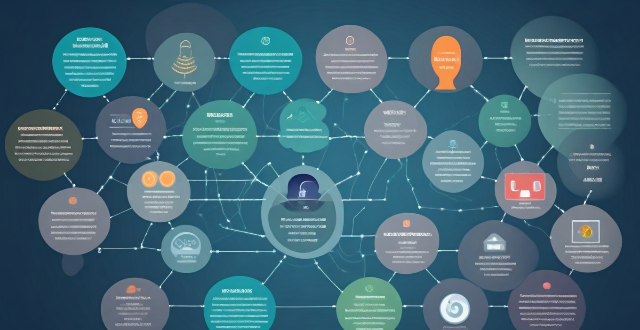
How can we effectively communicate climate science to the general public ?
Effective communication of climate science to the general public is crucial for raising awareness and promoting action on climate change. Strategies include using simple language, visualizing data, telling stories, providing actionable steps, collaborating with influencers, and addressing concerns and misconceptions.

How can citizens influence government policies related to climate change ?
Citizens can significantly influence government policies on climate change through various means like voting for pro-climate candidates, public advocacy, education, community actions, making sustainable consumer choices, collaboration, legal measures, digital engagement, research funding, financial decisions, educational integration, corporate responsibility, and international cooperation.
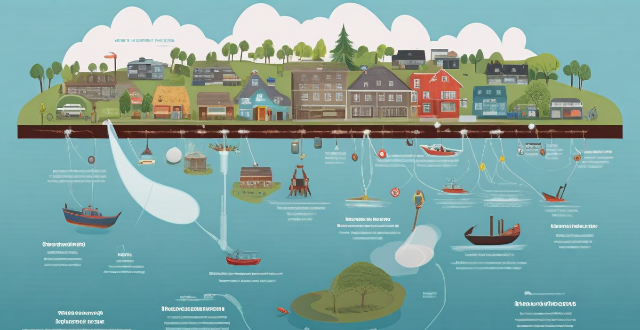
What is the role of global warming in climate disasters ?
The article discusses the significant role of global warming in climate disasters, highlighting its impacts on extreme weather events, sea level rise, ecosystems, and food security. It emphasizes the importance of taking action to mitigate these effects through strategies such as reducing greenhouse gas emissions, adapting to changing climate conditions, supporting research and innovation, and encouraging international cooperation.

Can we prevent climate loss and damage ?
This topic summary discusses the challenges and potential solutions to preventing climate loss and damage, which are negative impacts of climate change on natural and human systems. It highlights the scientific consensus on climate change, irreversible changes already underway, and differential impacts on various regions and communities. The summary then explores mitigation efforts such as reducing greenhouse gas emissions through energy transition, efficiency improvements, and forestry management, as well as carbon capture and storage technology. It also discusses adaptation strategies like building resilience through infrastructure updates, agricultural practices, coastal protection, community-based adaptation, local knowledge, and capacity building. International cooperation is emphasized through global agreements, financial support, and technology transfer. Lastly, individual actions such as lifestyle changes, advocacy, education, and awareness are mentioned as crucial components in minimizing further damage caused by climate change.
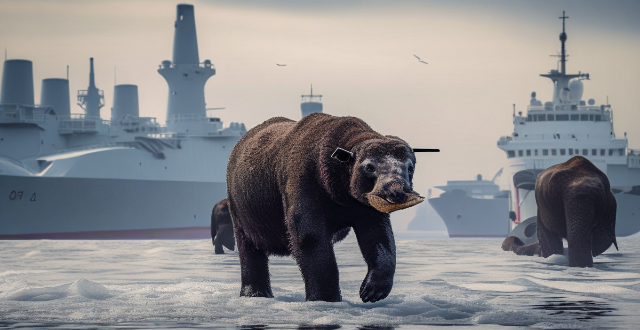
Can developed countries compensate for their climate debt ?
Developed countries have a moral and ethical duty to compensate for their climate debt by acknowledging historical responsibility, providing financial and technical support, and enacting policies that reduce emissions. This is crucial in addressing global inequities and mitigating the impacts of climate change. However, challenges such as quantifying climate debt and political will make compensation complex. International cooperation and agreements are necessary for effective action.

How do climate change negotiations influence national environmental policies ?
The influence of climate change negotiations on national environmental policies is significant, as they set international targets and promote technology transfer, financial support mechanisms, adaptation measures, stronger legal frameworks, and public awareness. These discussions help countries develop comprehensive policies that integrate climate considerations across various sectors, ensuring policy coherence and effective action towards global climate goals.
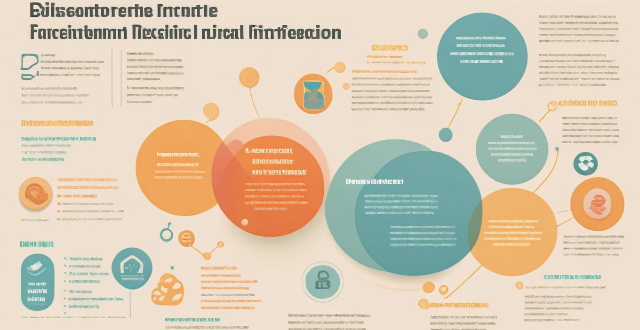
What are the economic implications of climate disasters ?
Climate disasters have significant economic implications, including direct costs such as infrastructure damage and agricultural losses, indirect costs like lost productivity and investment uncertainty, and global impacts on trade and commodity prices. Addressing climate change is crucial for protecting the economy and ensuring sustainable development.
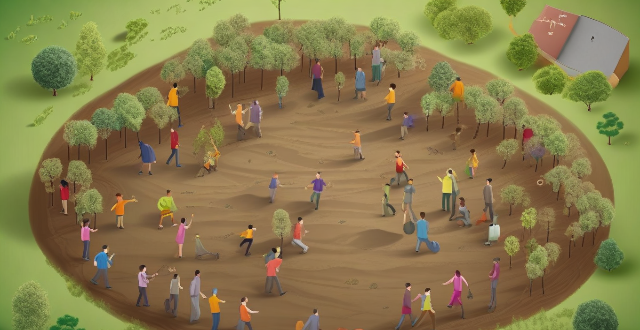
What role does sociology play in understanding and addressing climate change ?
Sociology plays a crucial role in understanding and addressing climate change by analyzing the social, cultural, and economic factors that contribute to the problem. Sociologists study social structures and norms, power dynamics and inequality, culture and ideology, and their impact on individual behavior related to climate change. They also conduct research and collect data on various aspects of climate change, educate the public about its social implications, analyze existing policies, advocate for new ones that prioritize social justice and equity, and collaborate with other disciplines to address climate change holistically. By identifying potential areas for intervention and generating innovative solutions, sociologists can help create a more equitable and sustainable future for all.

What is the status of climate finance commitments made during climate change negotiations ?
This text discusses the status of climate finance commitments made during climate change negotiations, highlighting their importance in mitigating and adapting to climate change. It outlines key points regarding financial commitments, progress towards targets, channels for finance, and the need for improved monitoring and reporting mechanisms. The text also explores the involvement of both the public and private sectors in climate finance, as well as the challenges and opportunities that exist in this area. Finally, it emphasizes the significance of increasing transparency, improving accountability, and exploring innovative financing solutions to ensure that these commitments result in meaningful actions to address climate change.

What are the benefits of having a strong climate awareness ?
The benefits of having a strong climate awareness include reducing one's carbon footprint, improving health and well-being, economic benefits such as job creation and cost savings, and increasing resilience to climate change impacts through disaster preparedness, adaptation strategies, and community engagement.